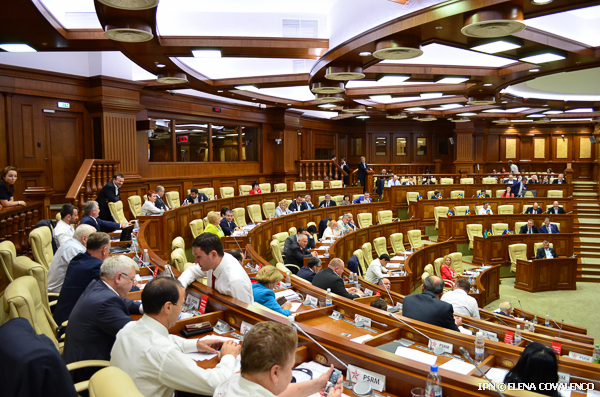
The adoption in the final reading of the bill on capital liberalization and tax stimulation could lead to the legalization of the US$1 billion stolen from the banking system, while the legalization of property will enable to ‘clear’ the debts of state-owned companies so that these could be later privatized ‘clean’, experts of the Institute for Development and Social Initiative “Viitorul” Veaceslav Berbeca and Ion Tavarta say in a study entitled “Hybrid power and its players. Fiscal amnesty of 2007 and capital liberalization and tax stimulation of 2016: two acts of the same play”, IPN reports.
Veaceslav Berbeca said the initiative of 2007 has a lot in common with the bill promoted by the Parliament’s administration in 2016, namely concerning the legalization of money and real estate or share holdings in firms. “If we analyze the bill on capital liberalization and tax stimulation of December 2016, we can say that we have a déjà vu after a period of nine years. The situation of 2007 will practically repeat in 2017 if the law on capital liberalization and tax stimulation is adopted,” stated the expert.
According to the forecasts of 2007, the state was to obtain about US$1 billion as a result of capital liberalization. In reality, there were legalized assets to the value of 360 million lei, which is US$35 million according to the official exchange rate of the National Bank of Moldova. The state also lost about 4.3 billion lei (state budget revenues projected in 2007) as a result of the annulment of debts, larger overdue amounts and unpaid fines.
The reasons for the failure of this policy include the fact that such initiatives cannot produce results in corrupt states, where the bodies responsible for maintaining order are controlled by the ruling parties.
Ion Tabarta, who analyzed the bill on capital liberalization and tax stimulation of 2016, said the Government didn’t take part in its drafting. Moreover, the document wasn’t approved by a series of institutions, including the National Anticorruption Center. There are reasonable suspicions that the legislative initiative of 2016 pursues a hidden goal, such as the legalization of ill-gotten gains either from inside or outside the country. The two initiatives, of 2007 and 2016, were promoted by a narrow group of people connected with decision makers of the political power. This leads to the conclusion that their key goal is to serve the interests of this narrow group that uses the state institutions to enrich itself.
The authors formulated a series of scenarios related to the bill of 2016. One of these is that the politicians will adopt it in the final reading despite the resistance put up by civil society and foreign partners’ recommendations. A more plausible possibility is that the bill will be abandoned until a period that will be more favorable for promoting this in a different form. The third scenario is that the politicians will give up the idea of adopting this bill.


